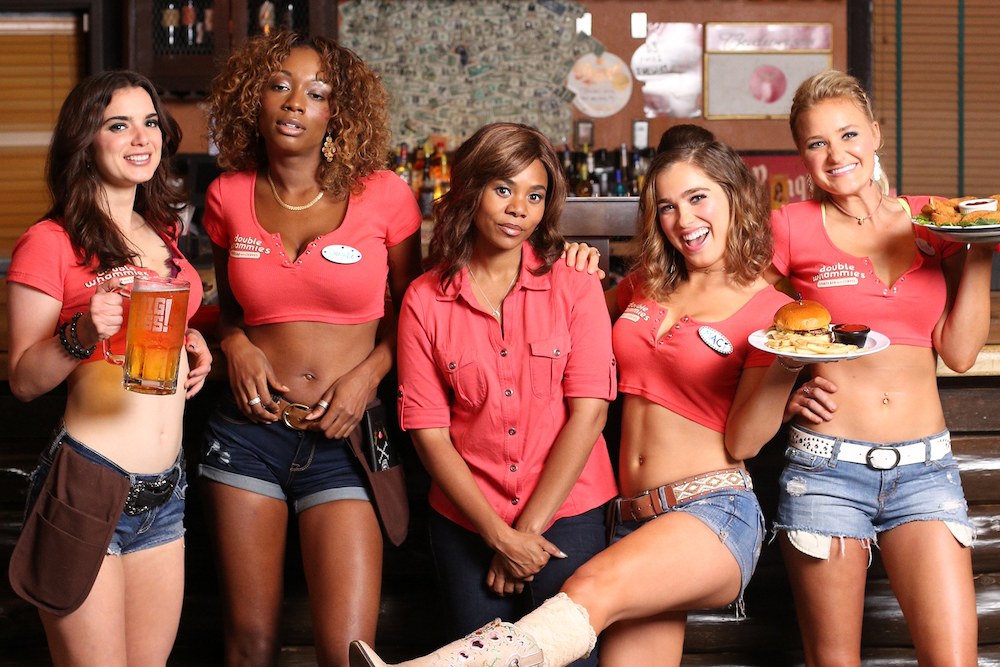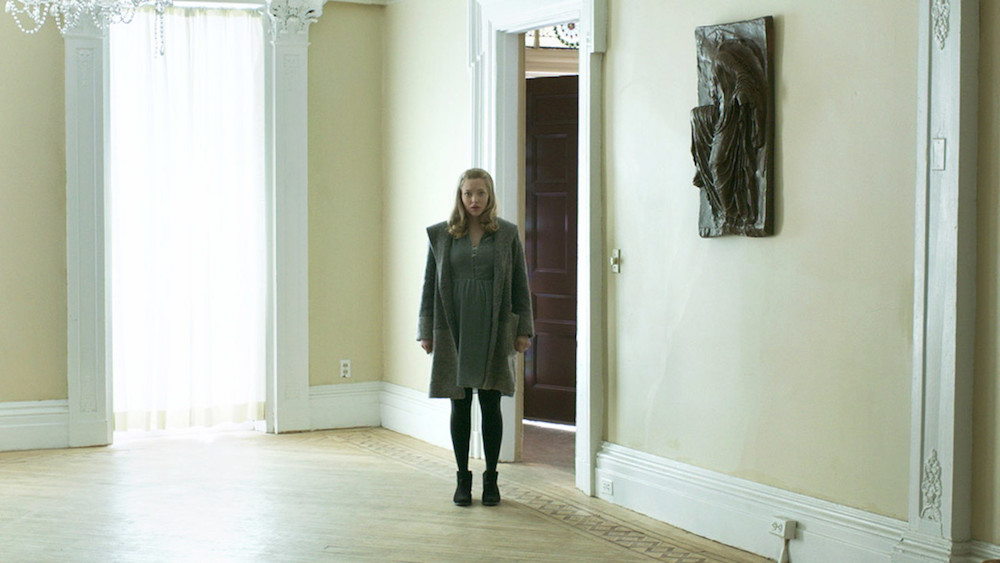
2018, huh? That fucking sucked, didn’t it?
Well, I mean, yeah, it did, but given the last few years we’ve had, that kinda seems par for the course. If anything, it just seemed incredibly long, with petty indignities and literal crimes against humanity piling up in more or less equal measure.
But, if I may show some kind of uncharacteristic positivity, it is encouraging that the best films of 2018 almost all made their greatest virtues out of the power of compassion, friendship, and love. From Support the Girls‘ wage slave unity to Isle of Dogs‘ man’s-best-friend adventure to Assassination Nation‘s righteous solidarity to The Night Comes for Us‘ teamwork-required against all odds mission, the theme on the minds of artists seems to be oneness, a fight against atomization and loneliness, a sense that other people need our help, and we need theirs. Fighting in the Age of Loneliness couldn’t have come out at a more apt moment. We are made whole not by self-actualization, but by group actualization–by being part of something larger than ourselves, by bringing the value of community back from the brink of commodification and modern isolation.
So yeah, shit’s rough out there, but at least we’re all in this fucking death trap together, right? Here’s the films this year that made me feel a bit less lonely singular.
Honorable Mention: The Unchanging Sea

Water fills up the speedboat in Miami Vice. A woman is left behind onshore as men who might already be dead by the time she was filmed row off into the distance. A horizon splits apart. What works so wonderfully about The Unchanging Sea is how it explores the ways the sea has changed in our perspective through time, and how it hasn’t, the ways in which high grain black and white might better express the experience of being in the ocean better than hi-def digital, or at least express is differently. Using overlaid images, The Unchanging Sea swells and changes like its subject, moving out of its own boundaries, changing color and texture, stretching and shrinking in frame, mirroring in form the form of nature. The oceans, more or less, never change in the same way they are always changing–but what about us? Maybe we can call it organic structuralist film.
Honorable Mention: Support the Girls

There is power in a union. Or, well, there’s power in solidarity, which, since the continual gutting of nearly every form of labor protection under the sun since at least the 70s, is almost all the waitresses of Double Whammies have left. Led by their manager Lisa (Regina Hall, in a jaw-droppingly great performance) through a workday from hell, Maci and Danyelle (Haley Lu Richardson and Shayna McHayle, both shoe-ins for supporting actress nods as well) show some new recruits the ins and outs of working at the neighborhood Hooters knock-off, including the often perilous routes through rampant misogyny, racism, and class struggle involved in the job (and involved with the scumbag restaurant owner Cubby, played by James LeGros). What is so fresh and moving about the film is that it remains despairingly honest about the reality of work under neoliberal capitalism while still being open-hearted, kind, and hilarious. Support the Girls–or don’t. They’re going to support each other no matter what you do.
Honorable Mention: Fourth Era

A slow cinema film made in Skyrim. That’s the pitch, folks, and if you’re not on board with that you’re out of luck. But for those with the interest, Fourth Era asks us to look at man-made creation, meant to emulate natural creation, through the lens of a second man-made creation (getting your noumenas and phenomenas all mixed up in a thick ontological slurry) and reflect on what we see. Water animations churn, lo-res ants run tracks around a tree stump, you hear sound effects loop awkwardly because they never expected someone to stand in one place for this long doing absolutely nothing. Like a Mount Eerie lyric I feel I quote all the time (“There’s no other world/Mountains and websites”), Fourth Era abolishes the distance between the natural and unnatural, between the experienced and the real, between “man-made” and “nature”, and in the process interrogates how we view all those things. All that with a bit of highbrow machinima.
10. Fighting in the Age of Loneliness

Jon Bois is, on the face of his content, one of the most unlikely online video auteurs for me to develop an intense love of. I just… I just don’t give a shit about sports. At all. Not in a negative way, not in a malicious, angry way, I just find them about as interesting as other people might find my interest in nearly unreadable Marxist economic texts that expect you to know intimately what the surplus value theory of labor is. Yet, somehow, I’ve re-watched basically every video Bois has made numerous times. What he excels at is finding a core story, an arc or piece of fascination that the rest of the things can build around and still remain legible to someone like me who only vaguely knows how “downs” in football work. Working with a script and narration from Felix Biederman (best known from Chapo Trap House), Fighting in the Age of Loneliness explores the strange, often sensational and bloody history of mixed martial arts through these kinds of core stories, threading them together with a focus on how economics and politics have shaped the sport, and what it means to American culture (and why, exactly, it got huge when it did). If I say it’s like discount Adam Curtis if you replace deadpan gallows humor with leftist snark, it’s only because I think that is a rather high compliment.
9. Annihilation

What began as a film I gave 4 out of 5 stars to and expressed some serious reservations about somehow became my favorite science fiction film of the year due to nothing more than time. The things that bothered me–the truly bad guitar score, the sometimes obnoxious exposition, the ending I was very ambivalent about–either melted away in my memory or turned into odd strengths. Tessa Thompson, one of our great living actresses, has a moment of complete spiritual power I hesitate to watch again on the off chance it overwhelms me. “I don’t think it wanted anything”–what a powerful statement, an almost incomprehensible one to a human mindset, and a statement that in its simplicity regards language, intention, and purpose in a genuinely alien viewpoint of rare power and grace. The survival horror feel at the military camp, the hypnotically beautiful mutations, the soap bubble cinematography- Like Stalker, except this time there’s a fucking rad bear demon.
8. Agua Viva

Living in any even somewhat metropolitan area of the world, one is bound to hear daily a large array in ways of speaking. We hear a mix of languages, affects, and accents that all have connotations, that all have unique rhythms and purposes, all different ways of using the human voice in all of its variable splendor. Yet, in film, these ways are hardly treated as equals, hardly all “worth hearing”, let alone valuable and beautiful. Often, if we see the non-Anglo-American ways of speaking at all, it’s for a joke. Just think of the atrocious Chinese restaurant scene in that godawful boomer nostalgia classic, A Christmas Story. What Agua Viva does so beautifully is use one of these ways of speaking–the non-native English of a Chinese manicurist living in Miami–and presents it in a way that displays the poetry within. It is not patronizing, not mocking, and not removed and ethnological, but instead empathetic and uniquely interested in the sometimes halting rhythms, the search for words outside of one’s vocabulary, the difficulty of communicating in a language that one had to learn outside of childhood–it is humanly interested in what is usually a joke or a racist caricature, an Other. Together with its stunning watercolor animation, the central voiceover by Mengda Zhang shows a voice and inner life that mainstream American cinema seeks to humiliate, to control, or to ignore.
7. Fatal Pulse

When you’re an experimental film fan, the promise of a new experience means quite a bit. Being exposed to the outer limits of the form can almost make you weirdly bored by the outrageous and ridiculous. A film with two frames, alternating back and forth? Seen it. A film with one frame, static the entire time? Seen that too. 9-hour-long documentaries? Snore. Structural films based on the decay of film stock and the imperfections of all physical media? Wake me up when you find something that hasn’t been done to death, am I right? So please take it seriously when I say Fatal Pulse is weird– weird in that way where other weird film fans at each other on Twitter saying, “No, trust me, you haven’t seen anything like this fucking thing.” A lo-fi serial killer horror comedy meta-farce that is all of those things but somehow none of them at the same time, it manages to sustain an air of total oddball engagement that I usually have to go to so-bad-it’s-art auteurs like Neil Breen to find, except this time it’s on purpose. I don’t know if any of the people reading will like it, I truly cannot tell, but I can say that no one reading has seen anything like it (well, unless they’re a Damon Packard fan, in which case they’ve already seen this goddamn thing).
6. May I Please Enter

It’s no secret I’m a big fan of Alan Resnick. All of his work lands in this uncanny, unsettling area between disquiet and comfort, reality pushed in a way that reads as comedy but plays as horror. In May I Please Enter?, Resnick, dressed in his best cowboy outfit, asks two people living in a large home the titular question, he enters and takes a tour, and… that’s it. Except, of course, for the fact that it isn’t. The simplicity of this premise allows Resnick to provide a thematic reading from the mouths of the characters up front yet still remain complicated, enigmatic, and thematically thorny. Resnick offers politics with references to settler colonialism before throwing in a costume fashion show, a throbbing, breathing appendage poking into the screen, and an animated tchotchke that reads “I don’t respect smaller white men” (not to mention the funniest doorknob in 2018 film). These are loaded symbols, but also symbols that signify the oddness of the situation itself, becoming too intermingled in their use by the film’s larger form to have a meaning that stands alone within the text. “I think the news is getting way too political, right?” Resnick asks after a cookies and tea break, and he muses on whether another housing crash is coming. Resnick argues for the ghosts that haunt America, and he argues that their release has already happened, whether neoliberal capitalism will admit it or not.
5. Isle of Dogs

“Not Wes Anderson’s best,” seems to be the critical consensus on this one. Really? Really? So you didn’t shed tears when Chief allows Atari to hug him for the first time? You didn’t clasp your hand to your heart when you saw those puppies? You didn’t fearfully laugh when the trash incinerator entered the picture with perfect deadpan timing? Sure, I’m absolutely a sucker for stories about animals (and, as my colleagues will note, sometimes incapable of watching movies that even hint at them being harmed), but what I saw in Isle of Dogs was a narrative about chosen family, about the fear of being hurt, about the ways our past can stain us and how the present asks us to move forward anyway, not to mention a brilliant use of unsubtitled Japanese dialogue to make the English-speaking audience feel like how our dogs must feel when we talk (and, according to Moeko Fujii’s piece in The New Yorker, adding entire new layers of depth, humor, and cultural specificity for the native Japanese speaker). More than The Grand Budapest Hotel, more than Moonrise Kingdom, more than Fantastic Mr. Fox, this is Anderson working at the height of both his meticulous artistic design and his beating, very human heart.
4. Assassination Nation

I know, I know. This is a film that opens with a list of trigger warnings. This is a film whose last line is literally a 4chan meme. This is a film that is almost the platonic embodiment of Steve Buscemi saying, “How do you do, fellow kids?” But I fucking loved it. A massive part of that is, without question, Hari Nef, one of the strongest supporting actresses in a crowded lineup this year, actually making what should be cliched moments of trans experience real and lived in a vital. In an early scene, she experiences the fear and shame and loneliness that having sex while being trans often is; in a later one, she embodies, without melodrama, the terror that trans women face just being out in public. But even beyond that, what we have is a film that makes the existential nightmare of an online life real, that displays the dangers of being a teen girl as well as anything since Catherine Hardwicke’s masterpiece Red Riding Hood, that dramatizes in no uncertain terms what misogyny and transphobia really look like in America without pandering (ok, with some pandering, but not in that cringeworthy “Notorious RBG” way). There was no more frightening movie this year, none that more vitally spoke to a queer and often female audience in a physical, impactful way, that justified its use of triggering imagery in the way it actually says something and offers catharsis through its statement. When is the last time mainstream cinema was this honest with the state of the union?
3. The Night Comes for Us

Wet. That’s the number one word I have seen people use to describe this Indonesian martial arts/body horror masterpiece, and it’s not inappropriate. If you thought The Raid was kid’s stuff, then this is what you need in your life. But even beyond the bravura fight sequences, The Night Comes for Us succeeds in economical, efficient storytelling and character building that makes it so it actually means something when a character sacrifices themselves, when one of them dies, when one barely makes it through, beat up and barely able to move. The final fight is less a perfectly choreographed series of kicks and punches as it is two men beating the ever loving fuck out of each other until by the end they are both basically crawling around a room, broken, bleeding, literal razor blades sticking through them, giving them brand new piercings they probably didn’t need. And still it manages to land the greatest needle drop of the year, somehow invigorating, melancholy, tragic, heroic, fateful, and full of regret at the same time. You’ll never hear Low’s Drums and Guns the same way again.
2. Mandy

Look: there’s a certain demographic for this, and I admit that I am precisely the rube this film is made for. Heavy metal dork? Check. Horror movie fan? Absolutely. Nic Cage auteurist? Without a doubt. Sucker for weird-ass cinematography? Boom, right here. But if you’re on its wavelength, I don’t see how you couldn’t just love everything Mandy tries and succeeds in doing. A story about grief, sure, and a story about false prophets, definitely, and a retelling of Friday the 13th through Jason’s eyes, truly, but more than all that it is a long, droning power chord, something Sunn O))) concocted in their laboratory one day, a Boris Vallejo painting come to life in a pine forest, the most grandiose, beautiful, and absurdly silly primal scream of a movie I can remember seeing. This is from someone who really, really hated Beyond the Black Rainbow: Mandy is something else. Doom metal cinema, with every goofy, awe-inspiring, campy and mind altering connotation that implies. “A psychotic drowns where the mystic swims. You’re drowning. I’m swimming.”
1. First Reformed

In every moment we can find God. In every breath, there is beauty, and that beauty is the chance to be kind, to be compassionate, to love and to be loved, to connect and help others, to comfort, to be less alone. There is the chance of a miracle in every moment. And people have used these moments to become more singular, more atomized, more individual, to ostracize, to hate, to oppress and kill. People have used these moments to poison the air and the water, to ignore every single warning sign, to lay waste to creation in the name of the economic demiurge that we call capital, that word which should taste like ash and death on our tongues. There are rich men who call themselves God-fearing while, out of the other side of their mouth, they call for border walls to be erected, for children to be killed, they call for the vampirism of tax cuts while telling the starving to tighten their belts. Things are too far gone. Climate change can no longer be stopped fast enough to avoid irrevocable consequences. Capitalism can no longer be stopped fast enough to avoid the head on-collision that’s coming. People will die, and like always, the people that die will be the least powerful, the people least responsible for this situation, the least guilty. It is impossible not to despair. There is no hope. But there is still love, and there are still moments to be kind, to push, helpless as it is, against the unavoidable, and in this there might still be God, and we might still be able to ask them: Can you ever forgive us?



 Derek
Derek
 Isabelle
Isabelle